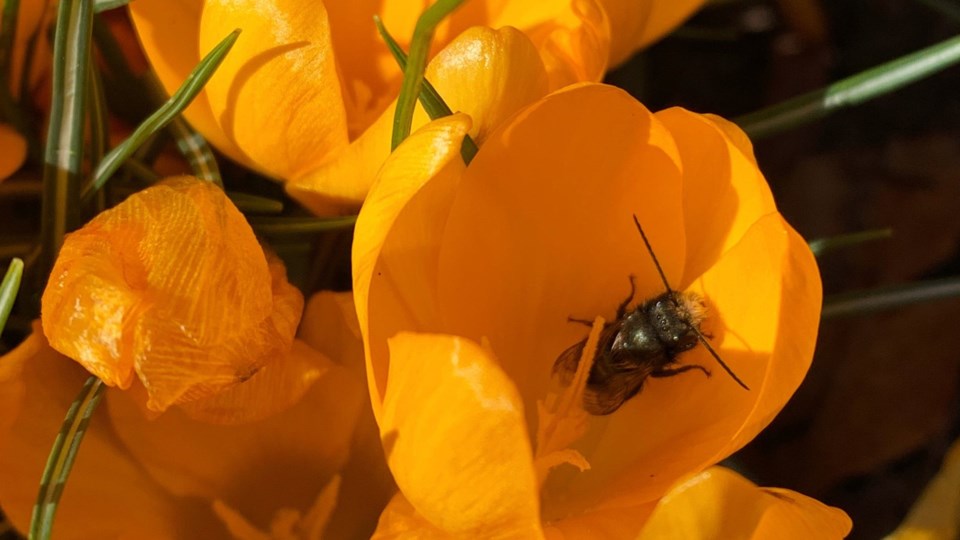Like many animals, bees hibernate.
Except, instead of nestling into a cozy, snug beehive, one colony of bees buzzing in Vancouver sleep in a fridge.
This odd sleeping arrangement is only available to mason bees though, explains the Â鶹´«Ã½Ó³»Board of Parks and Recreation, which houses the insects at its headquarters during the winter months.
"This year we stored 1,000 mason bees in the regular office fridge!" the Park Board tells V.I.A.
As spring rolls around, Â鶹´«Ã½Ó³»Park Stewardship groups release the slumbering mason bee cocoons into community gardens and park meadows. Then, in the fall, newly laid mason bee cocoons are collected, cleaned, and stored in the fridge until next spring.
This is done to protect the mason bees– a native species to B.C., from wasp and mite predation, explains the Park Board.
The cool fridge helps keep the bees in hibernation until temperatures climb back up to between 12 C and 15 C and flowers are in bloom.
"Native mason bee populations have declined over recent years due to changes in climate, loss of habitat and competition from introduced bees," explains the Park Board. "Protecting native mason bees is critical due to the important role they play in pollinating native plants, as well as spring-flowering orchard crops such as peaches, plums, cherries and apples."
Protecting spots where native bees naturally nest and growing gardens and meadows with native flowering plants also help maintain native bee populations, notes the Park Board.




